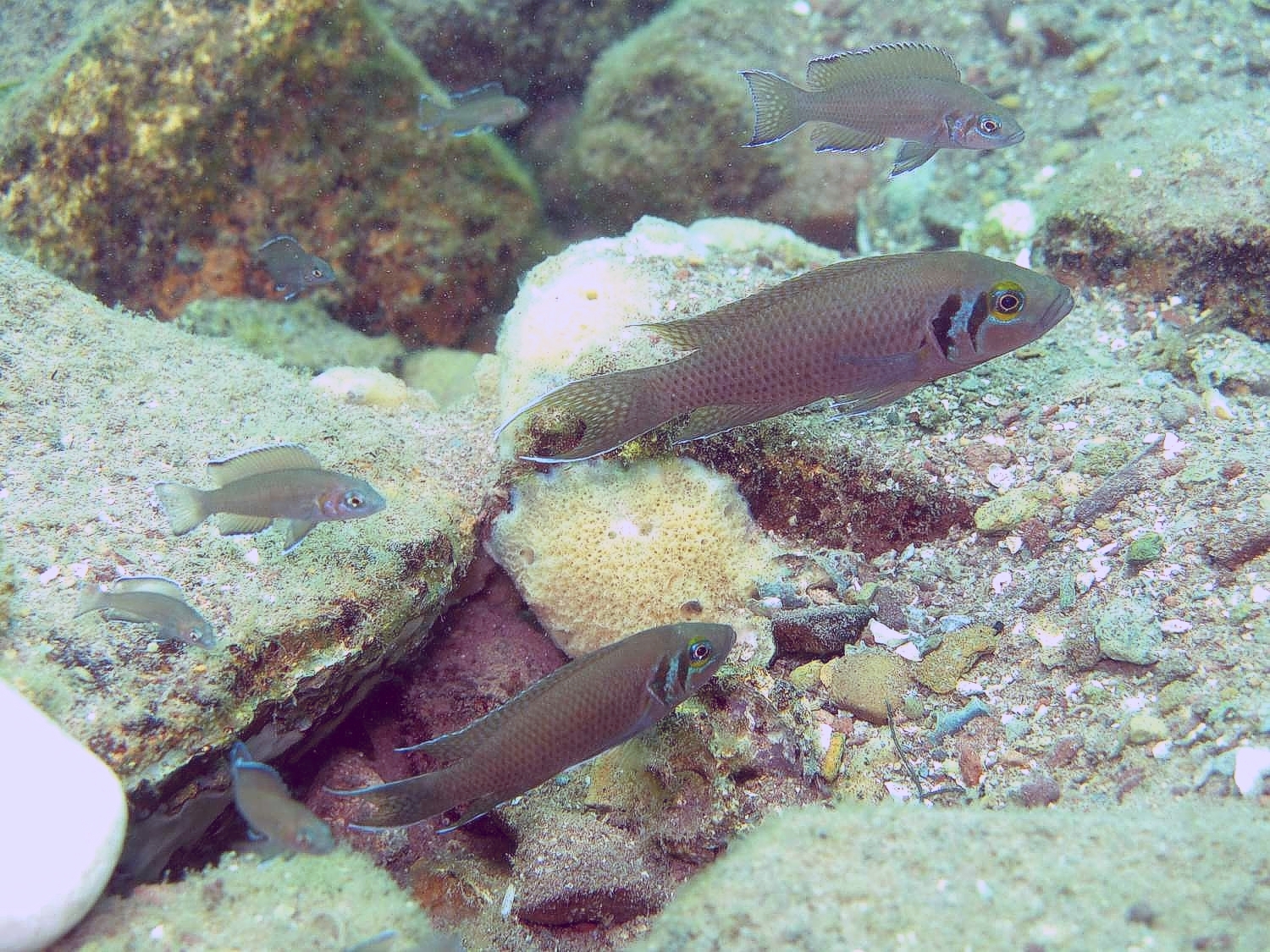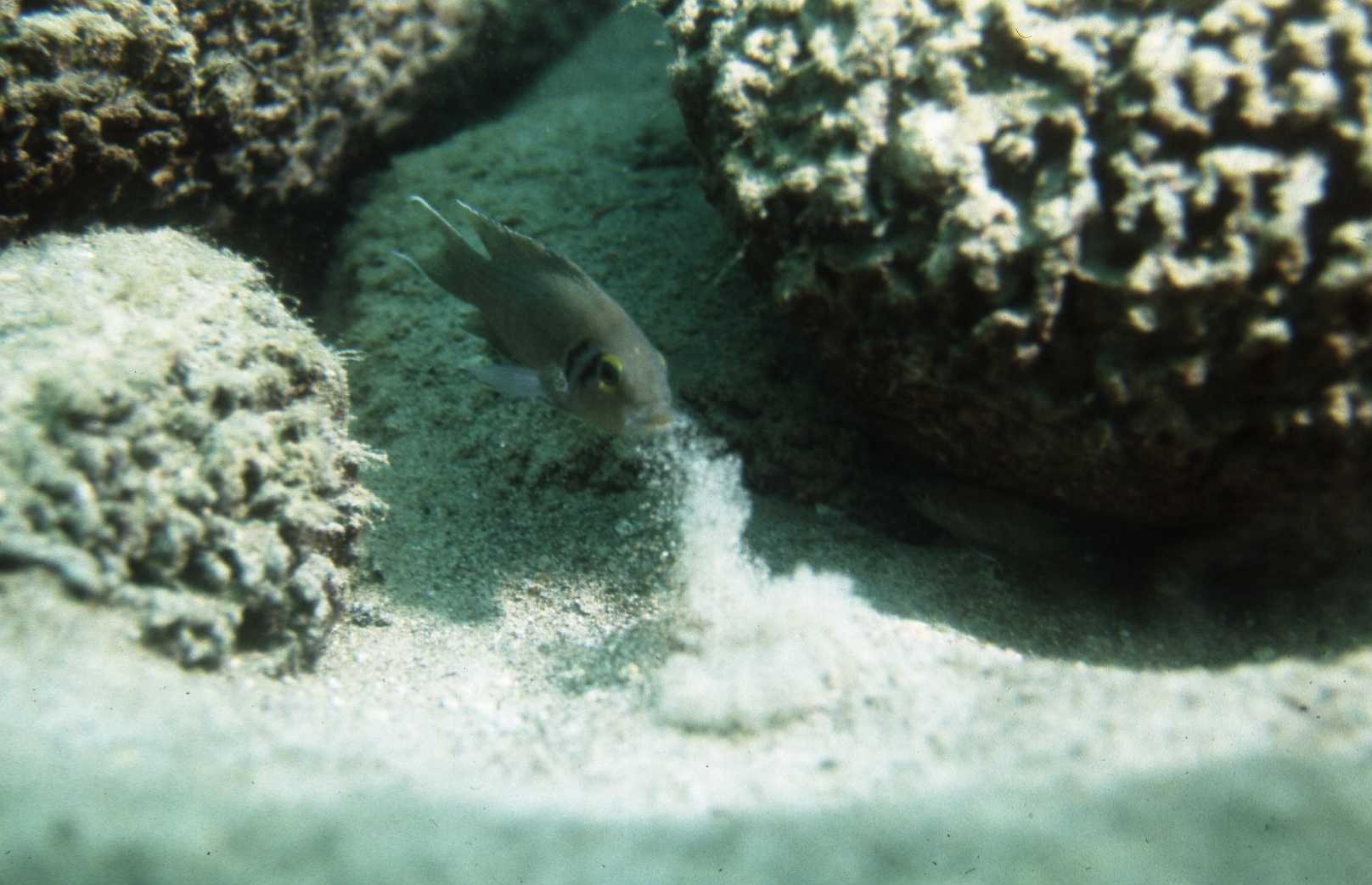Philopatry versus dispersal in highly social animals
In group-living species, either the male or female offspring disperse from their natal territory at some stage. Researchers from the University of Bern and the University of Veterinary Medicine, Vienna, unveiled in African cichlids which factors determine territory inheritance and emigration.
It is a widespread tradition in human agricultural populations that either sons or daughters inherit the parental property; the other gender must emigrate. In rural areas of Central Europe, sons were usually designated as heirs of the property and farm, while daughters were expected to start their families elsewhere. In social animals, either the male or the female offspring migrate: in mammals it is usually the males, in birds it is the females who give way to their siblings at home. This raises the question which factors determine these alternative roles. In any case, one of the two sexes must give way to the other, not least to avoid inbreeding, which can cause severe genetic detriment.
To understand the evolution of this gender-specific differentiation, the effects of philopatry and dispersal on the "genetic fitness" of both sexes must be known; this is a measure of genetically encoded characteristics that differentiate individuals from their conspecifics in terms of survival or reproductive success. Do male or female descendants benefit more from leaving the home territory, or are there other important reasons for sex-specific emigration? A new study published in Science Advances by researchers from the Behavioural Ecology Division at the Institute for Ecology and Evolution of the University of Bern investigated this question in a long-term field study, using highly social cichlid fish as a model system.
Philopatry benefits both sexes
The cichlid fish species "Princess of Lake Tanganyika" shows a highly developed social structure that does not fall short of the complexity characterizing cooperatively breeding birds and mammals. Besides, these fish allow the measurement of all factors determining survival, reproduction and life histories in their natural environment. The new study shows that in this fish species, remaining at home is more advantageous for both males and females than emigrating to other areas for breeding elsewhere. Nevertheless, one sex emigrates while the other is allowed to stay: the females inherit their natal territory, while males sooner or later leave home for good.
Intrasexual competition is pivotal
Why do male descendants disperse even if staying home would enhance their genetic fitness? Males grow faster than females and are larger overall, hence they should exceed their sisters in power. The solution to the riddle is the sex-specific competition for reproduction. Male subordinate group members are inhibited by the dominant territory owners both in growth and reproduction, as earlier experimental studies have shown. Male competition for the fertilization of eggs is more severe than female competition for the production of clutches. "At some point it will become more profitable for male subordinates to leave their home territory and reproduce elsewhere, even if dispersal implies clear fitness costs" explains study lead author Arne Jungwirth, a former doctoral student at the University of Bern, who now works at the Konrad Lorenz Institute of Ethology of the University of Veterinary Medicine in Vienna.
Is emigration necessarily disadvantageous?
Can we conclude from these results that also in other species those who emigrate are disadvantaged, in other words that they simply have to accept their suboptimal role as a result of intrasexual competition within their group? "This would be an erroneous inference because the specific biology and ecology of a species determines the fitness effects of different life history trajectories after all. However, we can learn from this study that the prevailing tendency of one sex to stay at home or to emigrate cannot necessarily be explained by different fitness effects on both sexes," says the head of the study, Michael Taborsky from the Institute of Ecology and Evolution at the University of Bern. Even if both sexes benefit from the same strategy, one of them may lose out due to other factors, such as for instance reproductive competition within the group.
The Division of Behavioural Ecology in the Institute of Ecology and EvolutionThe Division of Behavioural Ecology of the Institute of Ecology and Evolution at the University of Bern studies the evolutionary mechanisms underlying animal behaviour, depending on ecological and social conditions. In combination with the other divisions of the Institute, this helps creating a scientific basis for the understanding and preservation of our living world. The division studies the mechanisms by which organisms respond to and interact with their environment, including phenotypic responses at individual level, change in gene frequencies at population level, and the evolution of key features of all different kinds of animal behaviour and social systems. |
Publication details:Jungwirth, A., Zöttl, M., Bonfils, D., Josi, D., Frommen, J., Taborsky, M.: Philopatry yields higher fitness than dispersal in a cooperative breeder with sex-specific life history trajectories. Sci. Adv. 9, eadd2146 (2023) |
2023/03/03




